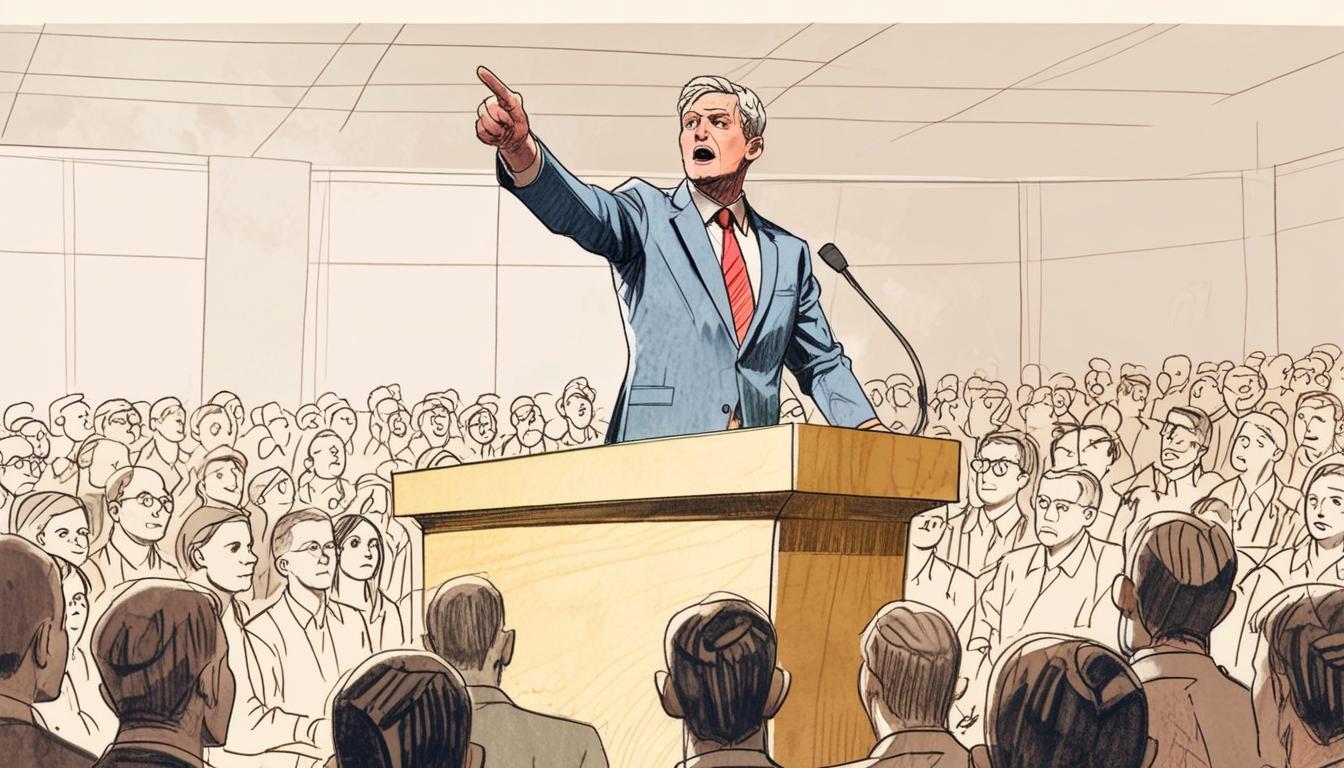Labour Faces Urgent Challenge as Populist Voices Rise
Labour MPs are increasingly alarmed as they confront a daunting new political reality following the recent electoral gains of a significant opposition force. After local elections that resulted in an unprecedented rise of new voices challenging the status quo, many within Labour are now describing the economic landscape as trapped in a "doom loop." This growing sentiment, especially among influential factions, includes stark warnings that without a radical shift, the prospect of a populist leader gaining power could become all too real.
In a candid assessment shared in a recent meeting, a cabinet office minister pointed out the stark dilemmas facing Labour. They indicated that the party finds itself in "the fight of our lives" for the public’s trust and future. There has been an intensified need for a formidable counter to the populist nationalism that has gained traction, redefining the upcoming political struggle as essential for maintaining Labour's foundational ideals against the encroachment of a more assertive right.
One Labour leader sharply criticizes the government's past year, characterizing it as a period of inertia, with ministers acting as "caretakers of decline." With the nation ensnared in low growth and increasing public disillusionment, urgent reforms are imperative. The economic challenges, described as severe, are deemed to warrant emergency-level responses, echoing the sentiment that failing to act decisively risks allowing far-right candidates to ascend to prominence.
Amid this political turbulence, MPs from various Labour factions have united to advocate for a departure from traditional economic orthodoxy. Calls for aggressive reforms in planning and energy policy are emphasized, aiming to rejuvenate the economy and elevate living standards. Concerns are growing that if the government does not act decisively, a push toward populist alternatives could gain momentum, appealing to increasingly restless voters.
The recent successes of opposition voices—including a platform that challenges existing immigration policies and prioritizes a more result-oriented approach to government—point to a substantial shift in the UK political landscape. The rise of these movements resonates with a public weary of the status quo, paralleling trends observed in other European countries where grassroots dissatisfaction has led to electoral upheaval.
Political analysts emphasize that the rise of these alternative voices signifies not just a fleeting moment, but a deeper societal discontent that has taken root, particularly in areas once considered Labour strongholds. With deteriorating public services and dimming economic prospects, many are gravitating toward these alternatives as a chance for fresh representation and accountability.
Labour’s leaders must now face the reality of rejuvenating their messaging and policy approach. There is an acknowledgment that simply focusing on immigration will not suffice to counter the appeal of more dynamic leaders who address the pressing concerns of everyday voters. The party must weave structural economic reforms into a cohesive narrative that resonates with those feeling left behind.
With party fragmentation becoming increasingly pronounced, Labour must now navigate a pivotal crossroads. Various factions within the party are embarking on coordinated efforts to share strategies and push for progressive policies that focus on revitalizing investment throughout the nation, not just in traditional strongholds. The urgency is tangible, conveying the message that populist advances should be taken as a vital warning sign.
As Labour gears up for this critical electoral phase, the message reverberating through its ranks is clear: revitalizing the economy and addressing societal divides is crucial to combat the growing influence of alternative, more determined populist movements. Without an assertive effort to tackle these pressing issues, the haunting possibility of losing the political forefront remains a troubling prospect for the party and the broader political sphere.
Source: Noah Wire Services
